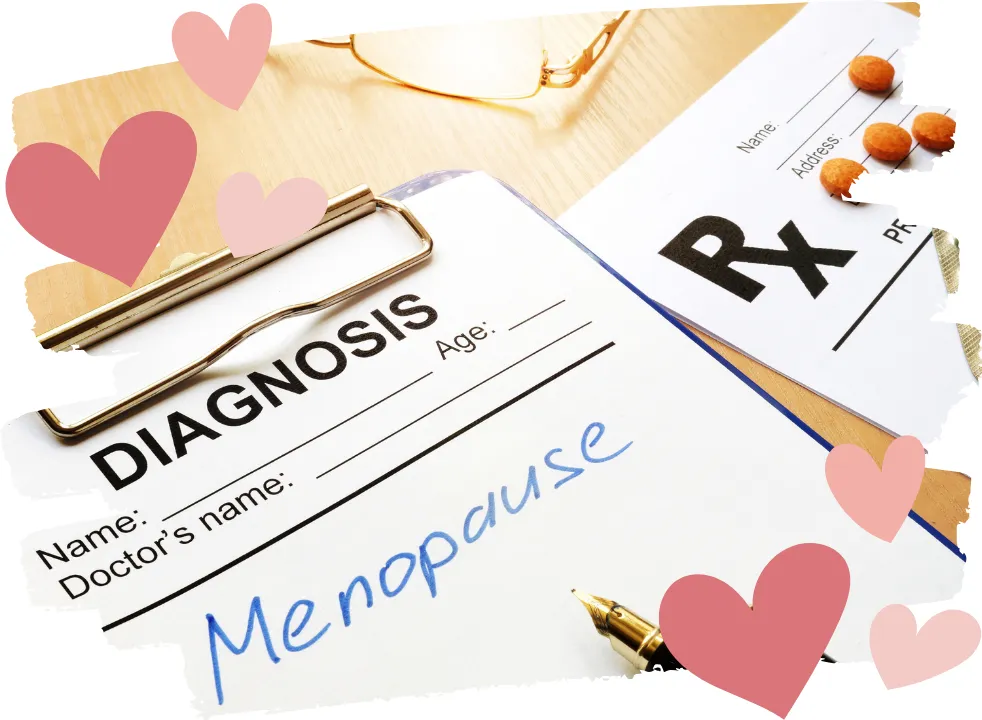The Blog
Perimenopause 101
So… your body’s doing weird things, your moods are all over the map, and Google is now your late-night bestie? You’re in the right place. This is your crash course in perimenopause—the messy, magical, hormone-fueled transition every woman deserves to understand. No medical jargon. No shame. Just real talk, expert insights, and tips to help you feel a little more human again.

Decoding Perimenopause: The Key Tests Every Woman Needs for Hormonal Clarity
✨ Perimenopause Power Moves: 5 Simple Nutrition Shifts to Help You Feel Like Yourself Again! ✨
Grab your free guide today!
👉 Download Now!
Decoding Perimenopause: The Key Tests Every Woman Needs for Hormonal Clarity
"Perimenopause isn't the end of your vitality; it's the beginning of embracing a new kind of power."
~ Kimberlee Erin
The Hidden Power of Perimenopause Testing
Let’s be real—nobody sends you a calendar invite for when perimenopause starts. One minute you're crushing life, and the next, you’re wondering why your pants don’t fit, your sleep’s gone AWOL, and your moods are swinging like a wrecking ball.
Here’s the thing: you’re not broken, and you’re definitely not alone. Your body is talking—sometimes yelling—and it’s time we started listening. The right tests can offer hormonal clarity and help you reclaim your power, one data point at a time.
You're Not Losing Your Mind—You're Unleashing It
“One thing I love about aging—and I do love aging—I’ve got a wisdom that no young person can buy. You earn it.” — Suzanne Somers
Midlife isn’t just hot flashes and skipped periods. It’s your body handing you a puzzle—mood swings, brain fog, weird weight shifts—and saying, “Figure me out.” That’s where testing comes in. Hormone panels aren’t just labs—they’re love letters from your body, helping you decode what it needs.
The Essential Hormone Tests for Perimenopause
Follicle-Stimulating Hormone (FSH): Your Inner Compass
Think of FSH like your hormonal GPS. When it climbs above 30 IU/L, it usually means you're inching closer to menopause. This test can’t predict your timeline perfectly (sorry, crystal ball not included), but it helps map the road ahead.
Estradiol (E2): The Elixir of Emotion
When estrogen nosedives—especially below 30 pg/mL—your emotions may start acting like toddlers on a sugar high. Testing E2 can confirm if low estrogen is behind those wild mood swings, hot flashes, and forget-where-you-put-your-keys moments.
Thyroid-Stimulating Hormone (TSH): The Great Imitator
TSH is sneaky. A sluggish thyroid can mimic every annoying perimenopause symptom: weight gain, fatigue, and the blahs. Testing this helps rule out thyroid dysfunction so you’re not treating the wrong culprit.
Anti-Müllerian Hormone (AMH): The Gatekeeper of Fertility
Wondering if your baby-making days are truly behind you? AMH offers insight into your ovarian reserve and reproductive timeline. It’s not just for women trying to conceive—it’s helpful for anyone curious about where they are in the perimenopause arc.
Progesterone: Your Calm in the Hormonal Storm
Low progesterone = hormone chaos. When this gentle giant goes missing, estrogen runs the show—and not in a good way. Cue: insomnia, anxiety, irregular cycles, and the dreaded “rage tears.” Testing progesterone helps you see if bioidentical support might be the peace treaty your body needs.
As Dr. Aviva Romm says,
"We have deep, innate, hormone intelligence."
Beyond Bloodwork: Digging Deeper for Clues
Pelvic Ultrasound: A Peek Inside
A non-invasive peek that tells you a lot: uterine lining thickness, pesky fibroids, ovarian cysts—it’s like a status update for your reproductive real estate.
Endometrial Biopsy: When Bleeding Won't Behave
If your periods are showing up like uninvited guests—loud, unpredictable, and heavy—it might be time for a closer look. This test can rule out more serious concerns and bring peace of mind.
Bonus Round: Screenings Every Midlife Woman Needs
Mammograms: Keeping Tabs on the Girls
With shifting hormones, breast tissue changes too. Regular mammograms (especially 3D or tomosynthesis if you have dense breasts) can catch issues early and give you peace of mind.
Bone Density Scans (DEXA): Because Your Skeleton Needs Love Too.
Estrogen helps keep bones strong, so when it dips, bones can start losing their sparkle. A DEXA scan helps you catch bone loss early and gives you time to add bone-boosting habits to your daily routine.
Advocate for Yourself Like the Queen you are
“It's astonishing how little we talk about perimenopause... there's this shame attached to it.”
~ Gillian Anderson
Let’s flip the script. No more suffering in silence or getting brushed off with “it’s just your age.” Here’s your checklist:
✅ Ask for hormone testing (even if your doctor rolls their eyes).
✅ Get those mammograms and bone scans on the calendar.
✅ Speak up, ask questions, and don’t settle for less than full answers.
✅ Share your story—your voice could be the lifeline another woman needs.
Not sure what to ask at your next doctor’s appointment? I’ve got you. 👉 Here are 10 essential questions every woman should ask her doctor about perimenopause.
From Mystery to Mastery: Your Perimenopause Action Plan
This isn’t about “fixing” you—it’s about understanding your body better than ever. Hormone testing isn’t magic, but it is empowering. When you know what your hormones are doing, you can support them with food, movement, lifestyle shifts, and (if it feels right) bioidentical therapy.
Embrace the Change with Power and Passion
You’re not fading—you’re rising. Every wave of this transition carries wisdom, resilience, and yes, power. It’s not about bouncing back to your 30-year-old self—it’s about moving forward with strength, insight, and grace.
“Maybe it’s time to rebrand perimenopause—not as a struggle, but as a transformation worth celebrating.”~ Gwyneth Paltrow
You've got this!
Hormonally Yours,
Kimberlee Erin
Just a heads-up: I’m a Certified Menopause Coaching Specialist and Holistic Nutritionist, and while I love sharing what’s worked for me and my clients, this blog is for informational purposes only. It’s not a substitute for medical advice. Always check in with your healthcare provider before starting new supplements, hormones, or treatments—especially since every woman’s perimenopause journey is different. You deserve personalized care that truly fits you.
Free Download
Embracing Perimenopause: Tips and Tools for a Smooth Transition
Feeling overwhelmed by perimenopause? You’re not alone. Get my free guide, "Embracing Perimenopause: Tips and Tools for a Smooth Transition," and gain the confidence to manage your symptoms effectively.
Packed with practical advice and expert tips, this guide will help you balance your hormones, reduce stress, and improve your well-being.
Download your copy today and start your journey towards a smoother, more empowered transition.

